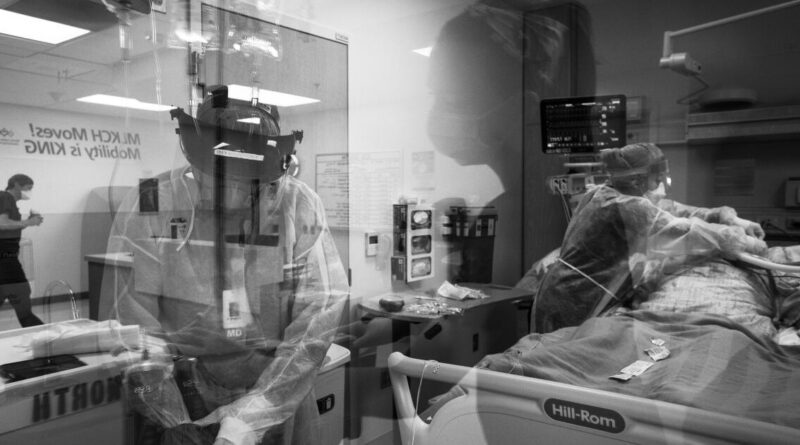Study: Severe COVID increased risk of heart disease, stroke as well as heart attack
People hospitalized for COVID-19 early in the epidemic had a higher risk of “cardiovascular events” such as heart attack and stroke that were similar to people with a history of heart disease, a new study found. release it found.
Researchers at USC, UCLA and the Cleveland Clinic analyzed more than 10,000 cases of COVID tracked by the UK Biobank to examine how COVID affected the risk of heart attacks and other cardiovascular threats.
Their study, released Wednesday in the journal Arteriosclerosis, Thrombosis, and Vascular Biology, evaluated the outcomes of patients in the first year of the epidemic and followed up for about three years.
The findings highlight that among “people without evidence of heart disease, having severe COVID puts them at greater risk of heart attack, stroke, and death,” said lead researcher Hooman. Allayee, professor of population and public health sciences. at USC’s Keck School of Medicine.
Among the most striking findings: Hospitalization for COVID in 2020 increased the risk of heart attack and other cardiovascular events to the same extent as people who had a history of heart disease but haven’t gotten COVID, the study found. .
Although the analysis showed that the increased risk was more pronounced among people with severe cases, the researchers emphasized that it was still visible in patients who received any type of COVID.
Such risks were nearly twice as high for people who had contracted COVID in all severity levels, and four times higher for hospitalized cases, compared to people who had not contracted COVID, the study found. .
The study shows that the increased risk “shows no signs of abating nearly three years after SARS-CoV-2 infection and suggests that COVID-19 is still continue to place a significant public health burden on cardiovascular risk,” they wrote.
Scientists also found that the risk varies by blood type: Hospitalization for COVID increases the risk for people with blood types A, B or AB than for people with blood types A type O.
“Your genes actually play a role in this increased risk of future heart attack and stroke,” said James Hilser, Keck’s associate professor of biochemistry and molecular medicine. who helped write the paper.
The researchers say their findings could help shape the way doctors try to solve such health problems in the future. Doctors often prescribe preventive treatment to patients with medical conditions such as heart disease or diabetes that put them at high risk of heart attack or stroke.
Allayee said that if a person goes to the doctor and is diagnosed with diabetes, “regardless of what his cholesterol is … he is given lipid-lowering drugs.” They are given baby aspirin. ”
But when doctors think about preventing heart disease, “nobody thinks about COVID — whether it’s severe or not — in terms of managing the patient,” Allayee said. Because of the findings, he said, “this is something doctors need to talk about,” as are the organizations that regulate heart care.
The study, which was funded by the National Institutes of Health, had some limitations: It only examined cases of COVID at the beginning of the epidemic before vaccines were available. (Another study published earlier this year, which also relied on UK Biobank data, found that heart attack and stroke rates were generally lower after each dose of the vaccine of COVID.)
The researchers also warn that some COVID patients may have undiagnosed heart disease while in hospital, something that would not be visible in the UK Biobank data.
#Study #Severe #COVID #increased #risk #heart #disease #stroke #heart #attack
